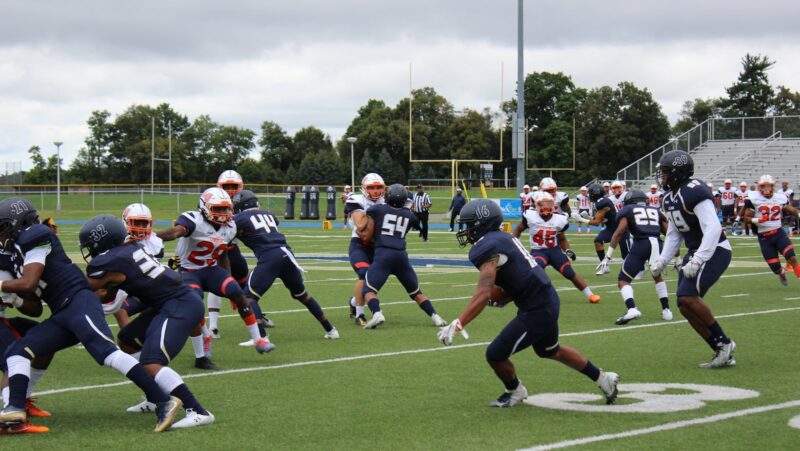
The current political situation in Russia has made it difficult for its Western counterparts to sustain productive relations. Russia’s actions in Ukraine, its support of the Assad regime in Syria and its interference in the U.S. 2016 presidential elections have all caused significant tension between Russia and the West, including Europe and United States.
To fully understand how these events will affect future relations between Russia and the West, it is essential to understand their motivations for acting as they did and consider how they can change over time.
This article will look at the most recent developments between the West and Russia, their effects on diplomatic and economic relations, and their roles on key security issues such as Syria, Ukraine, sanctions against Moscow and recent cyber-attacks. It will also analyze which changes in future behavior from both sides could lead to improved bilateral ties in times ahead.
Finally, this article will seek solutions for a possible way forward that could result in better mutual understanding between both parties, allowing for constructive progress towards more stable relations for all involved countries.
Apple changes Crimea map to meet Russian demands
The dispute between Russia and the West dates back to the 2014 annexation of Crimea by the Russian Federation from Ukraine. In recent weeks, this dispute has grown in intensity with Apple bowing to Russian demands to change how Crimea is represented on its digital maps. This incident has shifted the tides between the two nations and has significant implications for their future relationship.
In this article, we will discuss in detail the background of this issue.
History of the Crimea dispute
The current dispute over the Crimea Peninsula in Ukraine began with the fall of the Soviet Union in 1991 and has been an ongoing issue between Russia and the West ever since.
The first flare up of tensions happened in 1995 when Ukraine requested that Russia return control of the Crimean peninsula, which had been given to them by Nikita Khrushchev in 1954. The transfer was highly controversial then and even today is not universally accepted as legal, particularly by Western countries. Russia refused to return control at the time, leading Ukraine to take their case before an international court. In 1997, a compromise was reached where Ukraine would lease control of the Crimea back to Russia for 20 years.
Tensions flew again when pro-Russian President Viktor Yanukovych was overthrown in 2014 and replaced with a pro-Western government that sought closer ties with Europe. Despite warnings from both sides, Putin authorized a referendum asking Crimeans if they wanted to join Russia yet again; an estimated 83% voted yes according to reports from official Russian outlets. The move outraged western countries who accused Putin of violating international law by bypassing Ukraine’s elected government. As a result, sanctions were applied against individual Russians and Russian entities doing business in Europe or America for involvement perceived as interference in the nation’s internal affairs. Despite tepid unrest on both sides (Ukraine only controls west side while East is largely under Russian influence) it wasn’t until 2016 that Ukraine formally gave up claims over Crimea following negotiations with Moscow.
All major western countries refuse to recognize Russia’s sovereignty over Crimea if Putin remains president. Yet, at the same time, he views it as essential part of Russia’s history and part of his legacy. This means that Crimea will likely remain at center stage for foreseeable future whenever relations between West and East are discussed or debated about foreign policy objectives going forward will directly be impacted by this stalemate .

Apple’s decision to change its map
The decision by Apple to replace a traditional map of Crimea with a topographic gray area marked “Crimea Region” has caused a wave of reaction throughout Russia, with some officials suggesting the Cupertino-based tech giant is pandering to Western pressure. The current conflict between Russia and the West has been ongoing since 2014, partly due to sanctions initiated by the United States and other Western nations in response to Russia’s annexation of Crimea. Apple’s decision reflects a broader trend as governments worldwide seek to expand their control over global information, raising questions about how these decisions are made and how they might affect relations between Russia and the West.
At its root, Apple’s decision appears to be an effort to straddle political tensions associated with Crimea’s annexation by staying out of the debate altogether. The company has issued a statement saying that it chose not label Crimea as part of either Ukraine or Russia due to “the on-going dispute between the governments regarding its sovereignty” and that it remains committed “to showing only information from reliable sources such as our proprietary data sources and those provided by third parties with whom we do business.” While this may provide an acceptable middle ground for some, it is worth examining how this decision might affect attitudes toward Russia in Ukraine and other nations.
Despite its neutral stance, there could be consequences for Apple’s ties with Russian government entities such as Rostelecom or Rosatom Bank if analysts perceive that Apple is taking sides in diplomatic disputes. Similarly, there is likely concern among Ukrainian companies considering using technology from Silicon Valley that they may face opposition from Russian partners because of perceived loyalty to Western ideals. If tensions rise over Apple’s decision (or lack thereof), this could fuel existing hostility between the two sides and make meaningful dialogue on peace more difficult than ever.
Impact of Apple’s Decision
Apple recently announced that they would be changing their Crimea map on their products to meet the demands of the Russian government. This decision has stirred up much controversy and highlighted the state of relations between Russia and the West.
In this article, we will explore the implications of this decision for Russia and the West.
Impact on Russia-West relations
The move by Apple to comply with the US sanctions against Russia has had a ripple effect across the entire relationship between Moscow and Western countries. As one of the largest tech companies in the world, Apple provides services and products necessary for daily life. As such, its decision to no longer support products used by Russian citizens has caused immense frustration for many people in Russia.
Furthermore, it has also widened gaps between Moscow and the West since Apple’s decision symbolizes how economic powers can be used to pressure a foreign country. This could potentially create more distrust between governments and citizens of different nations. Suppose tensions continue to increase due to sanctions or other initiatives, such as discontinuing support for vital technologies. In that case, it is likely that strained relations may further impact global trade and political ties within this region.
In addition, Western governments may face increasing issues when attempting to engage with Russia’s increasingly isolated technological infrastructure. This includes potential increased efforts from hackers or other cyber mercenaries that seek to target its weakened security systems, which could lead to further escalation in international tensions.

Effect on Russia’s economy
Apple’s recent decision to restrict access to services in Russia has presented a major challenge to the Russian economy. The tech giant engaged in the action in response to an order from a Moscow court and it was followed by other U.S. companies, who took similar steps. The decision will likely pressure Russia’s currency, the ruble, by further reducing investment outside the country and encouraging capital flight from Russia.
This move could also contribute towards more difficult economic conditions for ordinary citizens and stoke concern about freedom of speech online within the country. Since Apple services are used for various online activities such as communications and banking, users now have limited choices. With Apple no longer available, reliance will switch towards Russian technology companies that produce less secure products than their American counterparts who rely on higher quality standards regarding privacy and security measures.
Additionally, this action could lead towards increased tension between Russia and other western countries which could have long-term fallout due to lack of trust between certain states or regions over new projects or agreements related to politics or business matters regarding trade or exports.
Reactions of Western Countries
Apple’s recent decision to change its map of Crimea to meet Russian demands has drawn criticism from leaders in Western countries. This has prompted discussions about how this will affect the relationship between Russia and the countries in the West.
This article will explore the reactions of Western countries to Apple’s decision and the potential implications this may have on the future of international relations.
US and European Union response
The US and EU have been vocal in their disapproval of Russia’s recent actions. In August 2014, the United States imposed sweeping economic sanctions on Russia, including a ban on exporting some energy-related equipment and technologies to Russia. The EU followed suit with similar sanctions later that month.
In addition, the US has stepped up its military presence in Europe in response to Russian actions to reassure allies that it will remain committed to defending against any aggression from Russia. In February 2015, the US announced plans to send 3,000 troops and more advanced weapons systems to Eastern Europe for training exercises with its NATO allies.
Economically, the US and EU have taken other steps as well. The European Investment Bank suspended new investments in Russia in September 2014 and formally froze them altogether in December 2014. And in February 2015, the G7 countries issued a statement saying they no longer recognize the legitimacy of Moscow’s actions in Ukraine and Crimea. They also agreed not to recognize any territorial changes resulting from those actions unless they are approved by Ukraine or agreed upon by all members of the United Nations Security Council – an unlikely scenario given that two permanent members (Russia and China) are firmly opposed to western involvement in Ukraine’s affairs.

Potential sanctions
As the international community continues to monitor events in Ukraine and Crimea, the potential for serious repercussions from Western countries remains strong. Sanctions are an effective yet delicate tool that can influence a country’s behavior while maintaining diplomatic relations. Should certain conditions warrant additional pressure, some of the sanctions that could be levied include:
– freezing assets and accounts of individuals or organizations directly responsible for this crisis;
– banning travel by government officials involved in destabilizing activities;
– limiting access to foreign capital and technology;
– imposing trade restrictions or other forms of economic penalties;
– suspending diplomatic relations with Russia.
Although widespread economic sanctions would undoubtedly isolate Russia, many countries hesitate to take significant measures without unanimous support from the EU and further diplomatic attempts at reconciliation. Still, sanctions remain on the table if events take a turn for the worse or violations of international law continue.
Conclusion
In conclusion, after considering the facts and recent actions taken, it is evident that relations between Russia and the West remain strained. Both sides maintain that they have legitimate interests to defend and have sought to use their influence on various global issues. While there may be some room for cooperation in areas of common interest, such as the fight against terrorism or nuclear proliferation, tensions due to diverging goals will continue present a difficult obstacle to overcome.
It is likely that any thaw in relations will first require more progress in resolving the ongoing conflict in Ukraine and that it remains uncertain how Putin’s move towards overreaching authoritarianism will shake out over the long term. As such, governments must be prepared for a prolonged period of uneasy peace between East and West unless these underlying issues can be swiftly resolved.












